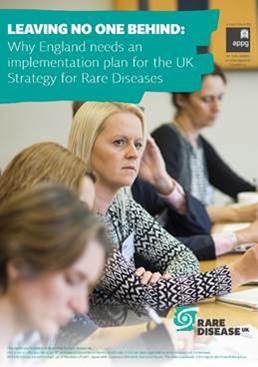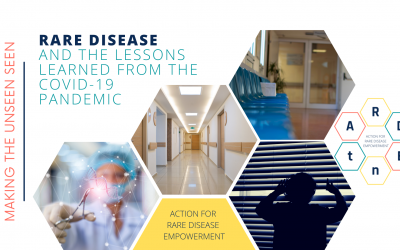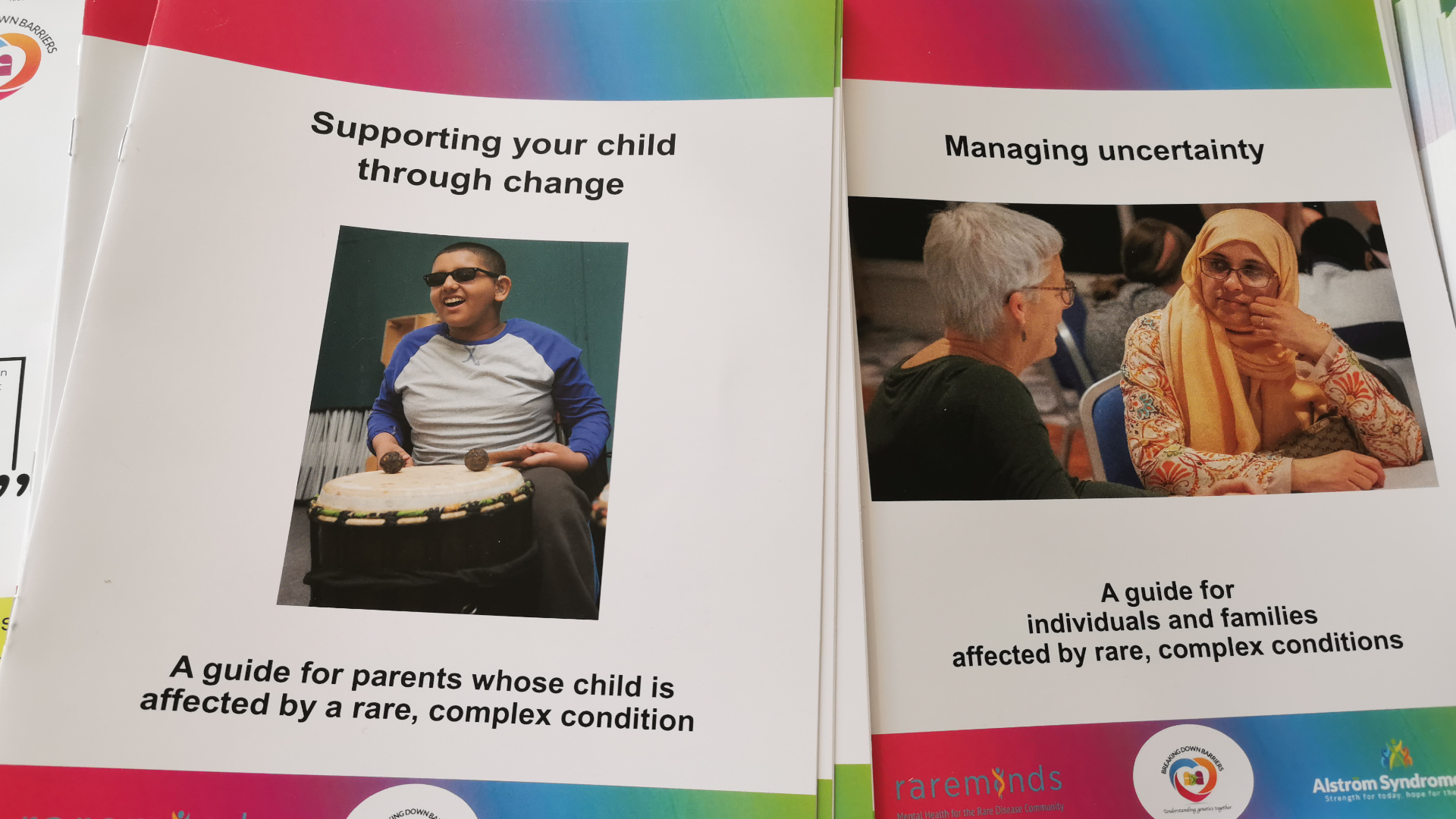The Importance of Collaboration
As part of the BDB project we have extended our reach more widely throughout the rare and genetic community to collaborate with others that are working in areas such as research and policy development. We are exploring a number of different projects focusing on the developments in genomics, improving service and access delivery and the accessibility of clinical trials for people from diverse and marginalised communities.
Department of Health & Social Care (DHSC)
10 Year Health Plan – Workshop Consultation
In February 2024, BDB and DHSC worked in partnership to deliver a workshop as part of the government’s consultation on the new 10-Year Health Plan.
The aim of the workshop was to include the voices of people from diverse, marginalised and under-served communities who also have experience of living with rare and genetic conditions.
The consultation focussed on the 3 key shifts within the plan:
- Analogue to Digital
- Hospital to Community
- Treatment to Prevention
The workshop included a diverse group of 10 people with lived experience. 9 people joined the virtual workshop, and 1 person provided written feedback – their comments were shared during the discussion.
Representatives from BDB, DHSC Rare Disease team and the 10-Year Health Plan team joined the workshop. The focus group was chaired by Kerry Leeson-Beevers, CEO of ASUK and BDB and patient representative on England’s Rare Diseases Framework Delivery Group.
Representatives from the DHSC Rare Diseases team thanked everyone for such an honest, open and fruitful discussion. Findings from this workshop will feed into the governments consultation and will amplify the voices of people with lived experience in the 10-Year Health Plan.
ASUK and BDB would like to thank everyone who contributed to the workshop, and all members of the BDB Experts by Experience Advisory Group for sharing their insights and experiences and for their continuous support.
We also give thanks to the DHSC and delivery partners for the efforts being made to address health equity for all people affected by rare conditions. We appreciate the recognition given to the importance of the patient voice, including the voices of people who often go unheard.
You can read the full findings from the workshop in the report HERE

ASUK Chief Executive, Kerry Leeson-Beevers was one of the patient representatives on the UK Rare Disease Policy Board; overseeing the implementation plan created to address the 51 commitments to rare disease patients highlighted in the 2013 Rare Diseases Strategy. The policy board was restructured in 2021 following the publication of the UK Rare Diseases Framework.
The UK Rare Diseases Framework was published in January 2021 setting out a national vision on how the UK will aim to improve the lives of people living with rare conditions. The Framework was developed based on the findings from the National Conversation survey which was launched by Baroness Blackwood in November 2019. 6,293 people responded to the survey, including over 5,000 patients, families, and patient organisation representatives.
There are 4 key priorities and 5 underpinning themes, and each nation of the UK are developing an Action Plan to show how these priorities will be met.
4 Key Priorities
- helping patients get a final diagnosis faster
- increasing awareness of rare diseases among healthcare professionals
- better coordination of care
- improving access to specialist care, treatments, and drugs
5 Underpinning Themes
- patient voice
- national and international collaboration
- pioneering research
- digital, data and technology
- wider policy alignment
Patient Voice is a crucial part of the Framework and following discussions with the Policy Board, the following statement was included in the Framework:
‘any commitments will be developed in consultation with patient representatives, giving particular consideration to ensuring representation from those whose voices can often go unheard, including patients from black, Asian and minority ethnic (BAME) or disadvantaged backgrounds.’
Kerry is now a patient representative on the Rare Disease’s Framework Delivery Group for England and has been involved in the development of England’s action plan alongside representatives from NHS England and NHS Improvement (NHSE/I); the National Institute for Health and Care Excellence (NICE); the Medicines and Healthcare products Regulatory Agency (MHRA); Health Education England (HEE); Genomics England; the National Institute for Health Research (NIHR); NHS Digital; the Medical Research Council and patient and clinician representatives.
As part of the development of the action plan, BDB and DHSC worked in partnership to understand more about the health inequalities experienced by people from diverse and marginalised communities who are also affected by a rare condition. We carried out a consultation exercise, led by BDB to run a workshop and the findings from this workshop have now been incorporated into England’s action plan that was published on Rare Disease Day 2022 (February 28th 2022).
‘The health inequalities workshop has been particularly valuable in shaping the current draft, and we are very grateful for all the effort you’ve put into connecting us to the community to ensure we’ve listened to as many voices as possible throughout the development of this action plan.’
Lauren Watson, Rare Diseases Lead, DHSC
More than 80% of rare diseases have an underlying genetic cause. Therefore, many of the developments we want to see through our findings from the BDB project, could potentially be addressed through the specific actions in the action plan and by the delivery partners we are now working alongside. We will continue to push forward to address underlying health inequalities, influence change, and make a real difference to the lives of people living with genetic conditions.
Health Equity & The UK Rare Diseases Framework
Focus Group Findings, 7th December 2022
In December 2022, BDB and DHSC organised a focus group to look at the progress that had been made in terms of health equity and plans for future actions within England’s 2023 Action Plan.
The virtual focus group included a diverse group of 9 people with lived experiences, plus representatives from BDB and DHSC. A draft confidential progress report and a list of further actions was shared with the group ahead of the meeting to help prepare for the discussion.
The focus group was chaired by Kerry Leeson-Beevers, CEO of ASUK and BDB and patient representative on England’s Rare Diseases Framework Delivery Group.
During the focus group, a representative from DHSC gave a presentation on progress and plans and asked the group to consider 3 questions that had been submitted by the Rare Diseases Framework Delivery Group:
- Do you have any examples of current experiences that relate to addressing health equity?
- What do you believe are the urgent challenges for addressing health equity?
- What education and training resources do you think would be helpful for healthcare professionals to help improve the way that genomic medicine services are being delivered within underserved communities?
Click HERE to view the full report and explore the discussion points.
Focus Group Meeting, November 2023
In November 2023, BDB and DHSC organised a second focus group meeting to discuss progress against England’s 2023 Action Plan.
The virtual focus group included a diverse group of 9 people with lived experience, plus representatives from BDB and DHSC. The previous Health Equity focus group report (December 2022), background information about the Rare Diseases Framework, and a briefing document provided by DHSC, was shared with the group ahead of the meeting to help everyone prepare for the discussion.
The focus group was chaired by Kerry Leeson-Beevers, CEO of ASUK and BDB and patient representative on England’s Rare Diseases Framework Delivery Group.
Kerry discussed the importance of this focus group; to ensure the voices of people from diverse and marginalised communities who live with rare and genetic conditions is included throughout policy and practice. The findings from these focus groups are shared with England’s delivery group partners, to support learning and encourage the development of inclusive and representative actions.
During the focus group, a representative from DHSC gave a presentation on progress and plans and asked the group to discuss 4 key areas:
•Health Equity
•Patient and Public Involvement & Engagement (PPIE)
•Mental Health
•Transition
The group explored some of the key challenges, examples of good practice and opportunities for further improvement.
Click HERE to read the full report and discussion points.
Please follow the links below to the UK Rare Disease Framework and the England Rare Diseases Action Plan 2022.
The UK Rare Diseases Framework – GOV.UK (www.gov.uk)
Published 9th January 2021
England Rare Diseases Action plan 2022

Kerry pictured left on the 2017 Leaving No One Behind report:
Why England needs an implementation plan for the UK Strategy for Rare Diseases.
Collaborating with Researchers
Our reputation, network, grass roots approach and ability to involve people with lived experience is a valuable resource to researchers. The contributions we make are based on the collective knowledge gained through the BDB network, ASUK and our own lived experience.
The CONCORD Study (CoOrdiNated Care Of Rare Diseases) (1st June 2018 – 30th November 2020) looked at how care services are coordinated for people with rare conditions in the UK. There was a large survey and workshops to gather feedback from patients, families/carers and healthcare professionals. Kerry, on behalf of ASUK & BDB, was a co-applicant in the study and co-chaired the Patient and Public Involvement Advisory Group. Further information about the study can be found in an end of study webinar which is available on the Genetic Alliance UK website along with links to publications https://geneticalliance.org.uk/gauk-news/news/concord-end-of-study-webinar-coordinated-care-of-rare-diseases/
ARDEnt (Action for Rare Disease Empowerment) brought together a  group of patient advocates to highlight the impact of the Covid-19 pandemic on people affected by rare conditions. The project was led by Cambridge Rare Disease Network, Medics 4 Rare Diseases and Rare Revolution. Kerry, on behalf of ASUK & BDB, was asked to join the group who collectively focussed on the impact of the pandemic on 3 key areas (linked to the Rare Diseases Framework). Priority 1: helping patients get a final diagnosis faster, Priority 2: coordination of care: Priority 3: Improved access to specialist care, treatment and drugs. The final report (pictured below) has been published and can be found www.camraredisease.org/ardent/.
group of patient advocates to highlight the impact of the Covid-19 pandemic on people affected by rare conditions. The project was led by Cambridge Rare Disease Network, Medics 4 Rare Diseases and Rare Revolution. Kerry, on behalf of ASUK & BDB, was asked to join the group who collectively focussed on the impact of the pandemic on 3 key areas (linked to the Rare Diseases Framework). Priority 1: helping patients get a final diagnosis faster, Priority 2: coordination of care: Priority 3: Improved access to specialist care, treatment and drugs. The final report (pictured below) has been published and can be found www.camraredisease.org/ardent/.
A Public Dialogue on the Implications of Whole Genome Sequencing for Newborn Sequencing (September 2020 – March 2021) (13.). Genomics England and the UK National Screening Committee worked in partnership to carry out this public dialogue with funding and support from Sciencewise. Kerry, on behalf of ASUK & BDB, was asked to be a member of the oversight committee and our role was to oversee the process and materials for the project and to ensure diverse perspectives were gathered. The aim of the project was to understand these diverse perspectives and use this to inform future policies and decisions that better reflect societal views, hopes, concerns and aspirations in terms of newborn screening. The findings highlighted public support for the use of whole genome sequencing in newborn screening, providing that the right safeguards and resources are in place.
The Newborn Genomes Programme (December 2021 – November 2024) (14.). Following the positive findings from the public dialogue, the Newborn Genomes Programme was launched. This will be a co-designed and ethically approved research pilot that will be embedded into the NHS to explore the benefits, challenges and practicalities of offering whole genome sequencing to newborns. The plan is to sequence between 100,000 – 200,000 babies over several years to accelerate diagnosis and access to treatments for rare genetic conditions. Kerry, on behalf of ASUK & BDB, was invited to join the Newborns Recruitment Working Group. The aim of the group is to provide diverse perspectives from people with lived and clinical experience to shape the questions that need to be asked and to give suggestions about how to engage with different audiences as the team design, test and carry out the newborn recruitment process.
Newborn Genomes Programme | Genomics England
EXPRESS (October 2019 – September 2022) – Optimising EXome PREnatal Sequencing Services. The study is funded by the National Institute for Health Research (NIHR). Kerry, on behalf of ASUK & BDB, is a co-applicant in the study as a Patient and Public Involvement (PPI) representative and attends research team and PPI group meetings. The aim of the study is to evaluate the new fetal exome sequencing service. This test is offered to parents where a fetal anomaly is identified in pregnancies and is likely to have a genetic cause. The evaluation will determine whether the service is equitable, acceptable, ethical, robust and cost-effective.
RWGS Study (November 2021 – October 2023) – Rapid Whole Genome Sequencing for the diagnosis of critically ill children: The study is funded by the NIHR. Kerry, on behalf of ASUK & BDB, is a co-applicant in the study, attends research team meetings and chair’s the Patient and Public Involvement (PPI) Advisory Group meetings. The aim of the study is to ensure the new Genomic Medicine Service provides an equitable and effective parent and patient-centred service. Rapid Genome Sequencing is being used to diagnose genetic conditions, support with management of conditions, identify treatment options or guide options around palliative care while avoiding painful diagnostic interventions.
Improving outcomes for children and young people with diabetes from socio-economically deprived and/or ethnic minority communities (October 2021 – September 2026). The study is funded by the NIHR. Kerry, on behalf of ASUK & BDB, is a co-applicant in the study and receives funding to lead on PPI and attend research team meetings. Children and young people with diabetes from economically deprived and/or ethnic minority groups consistently do worse in terms of glucose control than those from more affluent, white backgrounds. This is likely due to a combination of socio-economic, cultural and access barriers to better engagement and involvement. The aim of this project is to develop culturally appropriate interventions (including community outreach, key workers, enhanced education, and behaviour change methods) that will be piloted and then rolled out in hospitals throughout the country.
CIOMS (April 2018 – September 2022). Kerry joined the Council for International Organisations of Medical Sciences (CIOMS) Working Group to contribute to a guidance document on ‘Patient Involvement in the Development, Regulation and Safe Use of Medicines’. The document will be published in September 2022 and the chapter on low-income countries is particularly relevant in terms of engagement and involvement with people from diverse and marginalised communities.
Collaboration within the Network
BDB are always looking to collaborate, to utilise the skills within the network and so we don’t reinvent the wheel!
With this in mind, BDB were delighted to work with the charity Rareminds to develop Mental Health factsheets about ‘Emerging from Lockdown’. I am sure we can all resonate with each other, that the world is very different these days, and people’s anxiety to do everyday things, like leaving the house has been impacted. We hope these resources will be useful to share with the families you serve.
You can download the resources below:
Factsheet 01 Managing Uncertainty
Factsheet 02 Supporting your Child through Change


